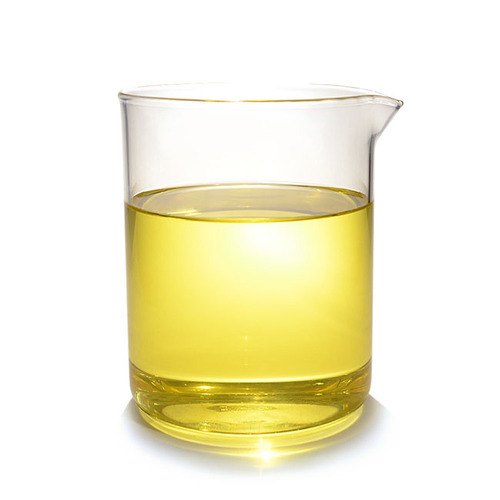Cocamidopropyl Betaine is a mild and gentle surfactant commonly used in hair care products. It helps to cleanse the hair and scalp without causing any damage or irritation. This ingredient can create a rich and luxurious foam that removes dirt, oil, and other impurities from the hair, leaving it clean and refreshed.

Additionally, Cocamidopropyl Betaine has conditioning properties that help to smooth the hair cuticles and enhance the shine and manageability of the hair. Its gentle nature makes it suitable for all hair types, including colour-treated hair.
Products Which Contain Cocamidopropyl Betaine
Cocamidopropyl Betaine is a commonly used ingredient in personal care and household products. Manufacturers favour it because it is a mild, biodegradable, and versatile surfactant.
In hair care products, Cocamidopropyl Betaine helps to cleanse the hair and scalp by removing dirt, essential oil, and other impurities without stripping the hair of its natural oils or causing damage. Cocamidopropyl Betaine provides a rich and luxurious foam that effectively cleanses the skin without causing dryness or irritation in body washes and soaps. Its mildness makes it suitable for even sensitive skin types.

A few such examples are :-
- Shampoos and Conditioners
- Liquid Dish Washes and Hand Washes
- Makeup Removers
- Surface Cleaners
- Body Washes
- Toothpaste
- Shaving Creams
- Intimate Washes
- Contact Lens Solutions
Overall, Cocamidopropyl Betaine is a versatile and effective ingredient in a wide range of personal care and household products, as it cleanses and conditions without causing irritation or damage.
Uses of Cocamidopropyl Betaine in Shampoo
Cocamidopropyl Betaine is a surfactant that is commonly used in shampoos. A surfactant is a chemical compound capable of breaking down the surface tension of a liquid, allowing it to spread more quickly. In the case of shampoos, surfactants help to break down dirt, oil, and other impurities on the scalp and hair, making them easier to rinse away. Cocamidopropyl Betaine is used in shampoos for several reasons.

First and foremost, it is a mild and gentle surfactant that effectively cleanses the hair without causing any damage or irritation. This is particularly important for people with sensitive scalps or hair prone to dryness or damage. Another benefit of Cocamidopropyl Betaine is that it produces a rich and luxurious foam that makes the shampooing experience more enjoyable. Many people associate the amount of foam with how effective a shampoo is, so adding Cocamidopropyl Betaine can give consumers the impression that the shampoo is working well.
In addition to its cleansing properties, Cocamidopropyl Betaine also has conditioning benefits. It can penetrate the hair shaft and help to smooth the cuticle, reducing frizz and increasing shine. This can help to improve the overall health and appearance of the hair. Cocamidopropyl Betaine is also a versatile ingredient in shampoos for all hair types. Whether you have oily, dry, curly, or straight hair, shampoos containing this ingredient can effectively cleanse and condition your hair without causing any damage.

The appropriate ratio of Cocamidopropyl Betaine in a shampoo formulation can vary depending on the specific product and the desired properties. However, using 5% to 30% of Cocamidopropyl Betaine in shampoo formulations is generally recommended. Using too little Cocamidopropyl Betaine in a shampoo may result in poor cleansing properties and inadequate foam, while using too much may lead to excessive stripping of the natural oils from the hair and scalp, causing dryness and irritation.
The exact ratio of Cocamidopropyl Betaine should be determined based on the shampoo's specific formulation and desired properties. The amount of Cocamidopropyl Betaine used can also be influenced by other surfactants and conditioning agents used in the shampoo. Finally, Cocamidopropyl Betaine is a biodegradable ingredient that is considered to be environmentally friendly. As consumers become more conscious about personal care products impact on the environment, using ingredients like Cocamidopropyl Betaine is becoming increasingly important.
Side Effects Of Cocamidopropyl Betaine
Cocamidopropyl Betaine is generally considered to be a safe and mild ingredient for use in personal care products. However, in some rare cases, individuals may experience side effects from using products containing this ingredient. Some of the areas that can be affected by Cocamidopropyl Betaine are-
Step 1: Cocamidopropyl Betaine can cause skin irritation in some individuals. Symptoms may include redness, itching, and burning sensations.
Step 2: People with sensitive skin or a history of allergic reactions may be more likely to experience these side effects.
Step 3: Skin irritation can be uncomfortable and lead to skin damage if left untreated.

Step 4: While rare, Cocamidopropyl Betaine can cause allergic reactions in some people. Symptoms may include hives, swelling, and difficulty breathing.
Step 5: Cocamidopropyl Betaine can cause eye irritation if it comes into contact with the eyes.
Step 6: Eye irritation symptoms may include redness, stinging, and tearing.
Step 7: If this occurs, it is essential to flush the eyes with water and seek medical help if the irritation persists.
Conclusion
In conclusion, Cocamidopropyl Betaine is a common and mild ingredient used in many shampoos for its gentle cleansing and foam-boosting properties. It is generally considered safe for personal care products but may cause skin or eye irritation in some individuals or rare allergic reactions.
The appropriate ratio of Cocamidopropyl Betaine in a shampoo formulation should be determined based on the desired properties and other ingredients. As with any personal care product, it is essential to read and follow the label instructions and seek medical attention if any adverse reactions occur.
Frequently Asked Questions
Cocamidopropyl betaine is a common ingredient found in personal care and cleaning products. It is a synthetic surfactant derived from coconut oil. This compound is widely used due to its excellent foaming and cleansing properties. Here are some frequently asked questions about cocamidopropyl betaine:

Q1. Is Cocamidopropyl Betaine safe for use in shampoo?
Ans: Yes, Cocamidopropyl Betaine is generally considered safe for use in shampoo and other personal care products when used in proper proportion.
Q2. What is the role of Cocamidopropyl Betaine in shampoo?
Ans: Cocamidopropyl Betaine is a surfactant that helps create a rich shampoo lather and provides gentle cleansing without stripping the hair of its natural oils.
Q3. Can Cocamidopropyl Betaine cause hair damage?
Ans: No, Cocamidopropyl Betaine is not known to cause hair damage. Its gentle cleansing properties can help improve the hair's overall health and appearance.
Q4. Is Cocamidopropyl Betaine a natural ingredient?
Ans: No, Cocamidopropyl Betaine is not a natural ingredient, but it is derived from coconut oil and is considered a mild and safe ingredient for personal care products.
Q5. How much Cocamidopropyl Betaine should be used in shampoo?
Ans: The appropriate ratio of Cocamidopropyl Betaine in a shampoo formulation can vary depending on the product and desired properties. Using 5% to 30% of Cocamidopropyl Betaine in shampoo formulations is recommended.










 Sign in
Sign in Register now
Register now My Reward Points
My Reward Points











